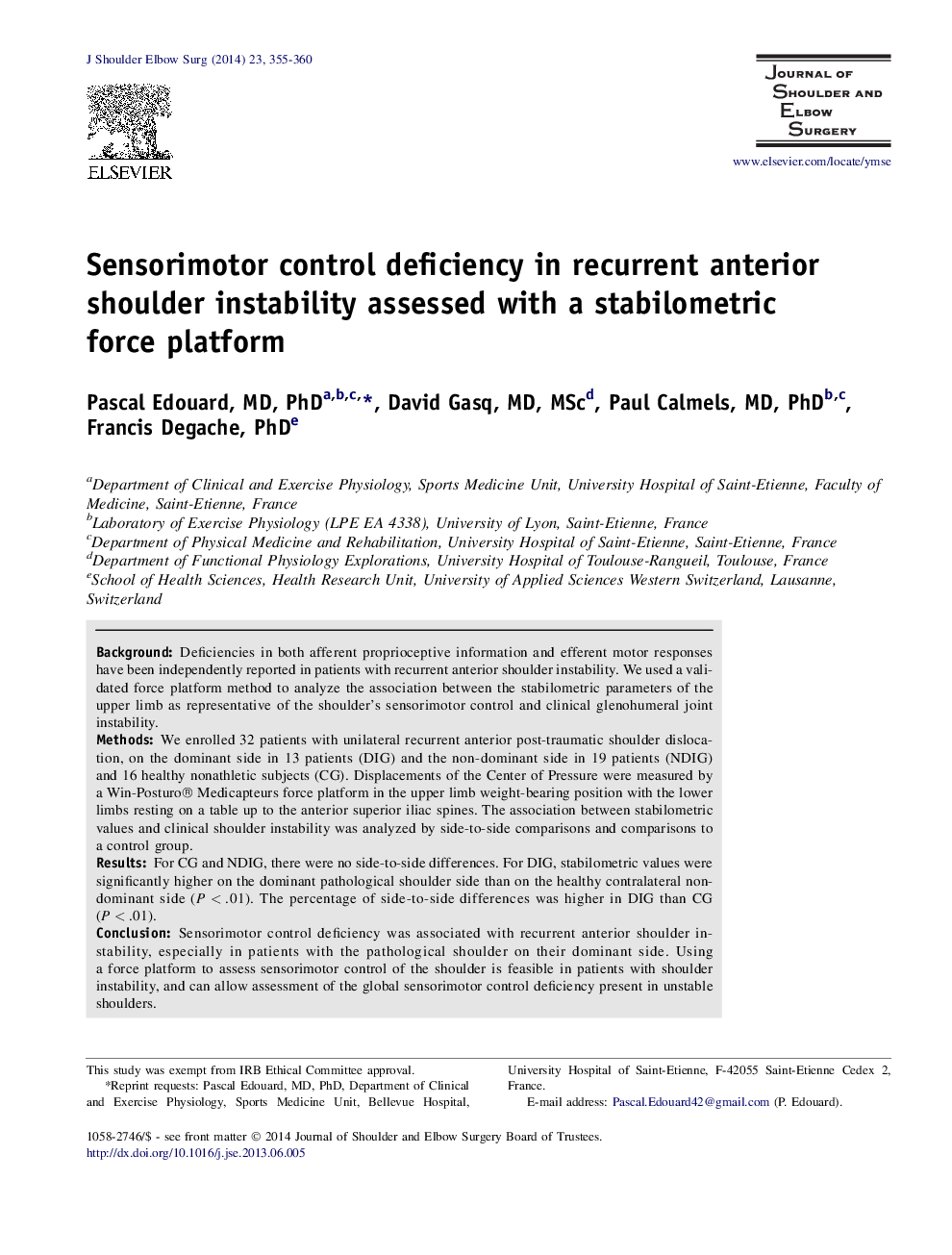| کد مقاله | کد نشریه | سال انتشار | مقاله انگلیسی | نسخه تمام متن |
|---|---|---|---|---|
| 4073704 | 1266988 | 2014 | 6 صفحه PDF | دانلود رایگان |
BackgroundDeficiencies in both afferent proprioceptive information and efferent motor responses have been independently reported in patients with recurrent anterior shoulder instability. We used a validated force platform method to analyze the association between the stabilometric parameters of the upper limb as representative of the shoulder's sensorimotor control and clinical glenohumeral joint instability.MethodsWe enrolled 32 patients with unilateral recurrent anterior post-traumatic shoulder dislocation, on the dominant side in 13 patients (DIG) and the non-dominant side in 19 patients (NDIG) and 16 healthy nonathletic subjects (CG). Displacements of the Center of Pressure were measured by a Win-Posturo® Medicapteurs force platform in the upper limb weight-bearing position with the lower limbs resting on a table up to the anterior superior iliac spines. The association between stabilometric values and clinical shoulder instability was analyzed by side-to-side comparisons and comparisons to a control group.ResultsFor CG and NDIG, there were no side-to-side differences. For DIG, stabilometric values were significantly higher on the dominant pathological shoulder side than on the healthy contralateral non-dominant side (P < .01). The percentage of side-to-side differences was higher in DIG than CG (P < .01).ConclusionSensorimotor control deficiency was associated with recurrent anterior shoulder instability, especially in patients with the pathological shoulder on their dominant side. Using a force platform to assess sensorimotor control of the shoulder is feasible in patients with shoulder instability, and can allow assessment of the global sensorimotor control deficiency present in unstable shoulders.
Journal: Journal of Shoulder and Elbow Surgery - Volume 23, Issue 3, March 2014, Pages 355–360
